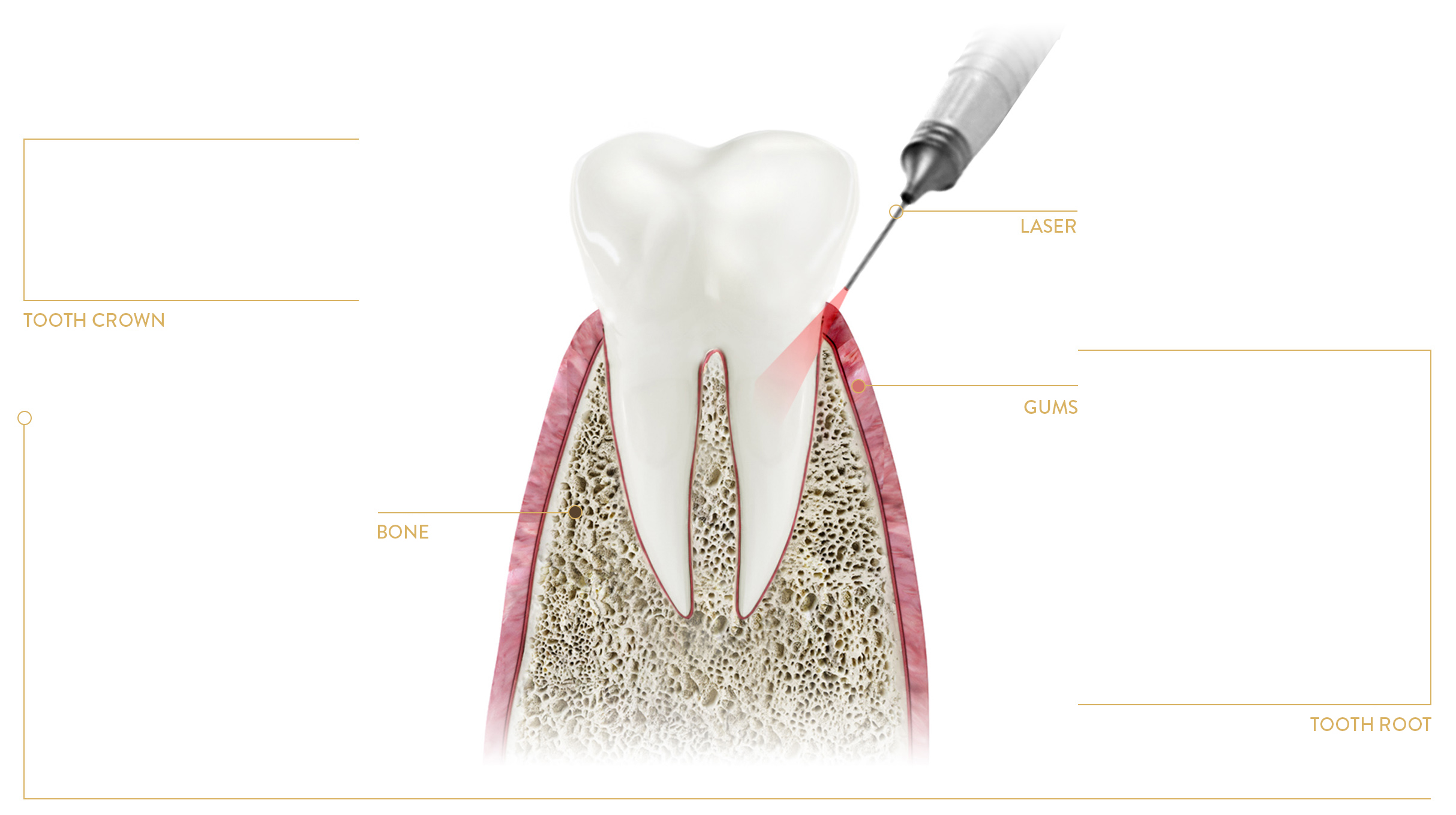Basic information

laser therapy
Laser therapy – a number of possibilities
Laser therapy allows for precise diagnosis and minimally invasive, contactless procedures in the field of conservative dentistry, prosthetics, endodontics and microsurgery.
Laser treatment is extremely beneficial – the therapy time is short, and the effects are visible quickly, sometimes after the first session. The laser eliminates hypersensitivity appearing after, among others, filling the tooth, endodontic treatment and tooth extraction. It has anti-inflammatory properties, which is often used to alleviate the painful eruption of wisdom teeth. It is also effective in the treatment of painful mucosal changes and discomfort due to exposed dental necks. It helps to eliminate abscesses, as well as inflammations in the oral cavity and is irreplaceable in the treatment of periodontitis.
Laser therapy is used in many cases.
The most common laser-involving conditions include:
- inflamed sinuses
- post-operative pain and swelling
- teeth resistant to whitening
- labial frenectomy
- lingual frenectomy
- removal of pulp during root canal treatment
- gingival surgery
- lengthening the crown of the tooth
- oral vestibule treatment
- abscesses
- aphthae
- herpes
- adenomas, haemangiomas, hypertrophy
Contraindications:
- neoplastic diseases – laser therapy is also not recommended for people in whom cancer has already been cured (5 years from the date of cure)
- tuberculosis
- pregnancy
- overactive thyroid gland
- severe viral, bacterial and fungal infections
- taking photosensitising drugs
Applied solutions
Laser therapy is one of the basic techniques of modern dentistry, and its operation is based on inducing vibrations of atoms in irradiated tissues and cells. Laser treatments are extremely precise, they reduce pain and accelerate wound healing.
In dentistry, mainly low and medium power lasers are used, which have therapeutic properties (anti-inflammatory and analgesic). High power lasers are used for surgical procedures – their operation is based on triggering controlled destructive processes of tissue.
The course of treatment
Laser treatments often do not require local anaesthesia. This method makes it possible to maintain the extraordinary precision – the laser is predictable, cuts on a narrow, precisely defined area. At the Cichoń Dental Centre, we use the innovative diode laser that eliminates hypersensitivity after tooth filling, endodontic treatment, tooth extraction and many other surgical procedures.
Frequently asked questions
Are there any contraindications to using laser therapy?
The use of the laser is completely safe and its contraindications do not differ from those mentioned in the case of other treatments. What is more, the laser can be used as an alternative for patients who due to health problems (e.g. ulcers, antibiotic allergy, and damaged kidneys) should not use pharmacological treatment.
How does the laser accelerate the healing of wounds?
Laser causes local release of lymphokines and interleukins, growth factors that support tissue regeneration.
Is it true that laser therapy can cure tooth sensitivity?
Indeed, one-time laser beam application is sufficient to free the patient from severe pain. We close the external outlets with the laser and reduce the diameter of the dentinal tubules so that the sensation of hypersensitivity will no longer be perceived. Laser therapy is currently the most effective method of combating tooth hypersensitivity.











